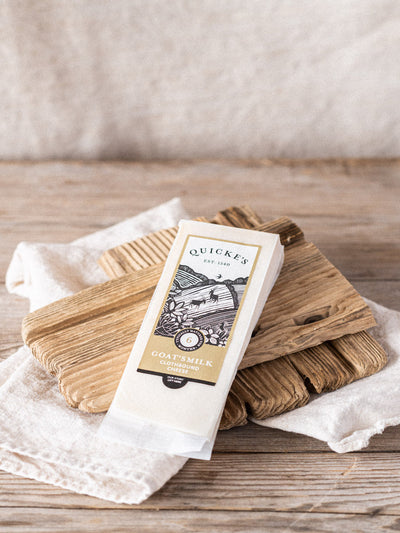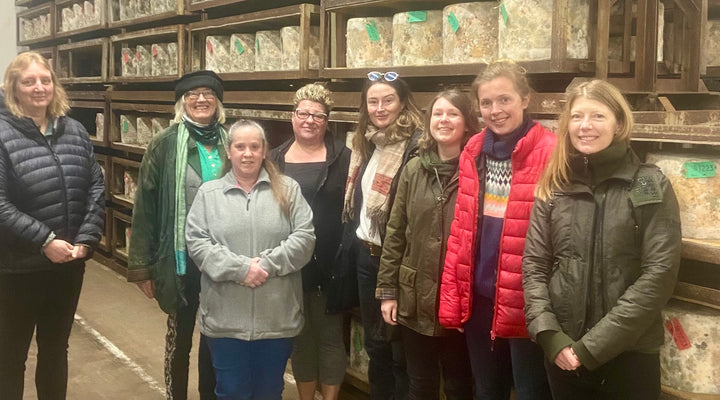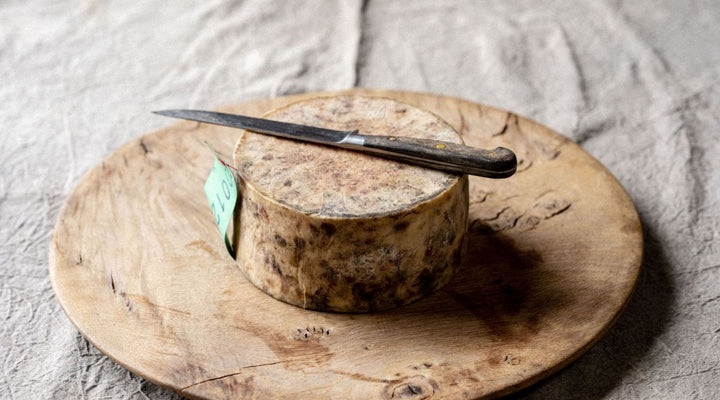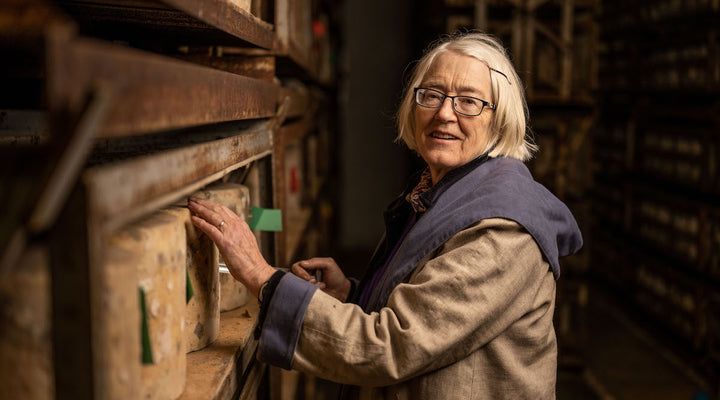This is a guest post by Dr. Katharine Earnshaw, a lecturer in Classics and Ancient History at the University of Exeter. She visited Quicke's as part of University Annual Fund project to help students to think about ancient agricultural practice in a modern context.
"When I first met Mary, she repeated a saying to me: ‘The difference between a good farmer and a bad one is two weeks’. It really stuck: partly because it captured something about the importance of timing when you are considering the land.
"The difference between a good farmer and a bad one is two weeks"
Seasons offer a way of thinking about the space of the land in terms of time. We get used to saying what a place is like using spatial terms (‘the field on the ridge has a wood at the back’, or ‘the raspberry canes are planted on the south side’), and we map locations in ways that makes it seem as though they stay the same. We know, of course, that there is constant change, but it can be tricky to pin time down when you are describing your garden. Seasons help us to do that. The land around us is evolving and moving, but not in totally unexpected ways: we see the patterns, and it helps us to predict what comes next.
This desire to think about how to manage the land over time is not only important when stood in a field; it has influenced literature over hundreds of years. One of the earliest pieces of continuous writing we have from Ancient Greece is an agricultural poem by a man named Hesiod. Writing at a similar time to Homer (around the 7th century B.C.), his Works and Days is based around one man farming his land, describing what one should do at different times of the year.
Didactic (‘teaching’) poetry based on agriculture did not end there. Virgil, the Roman author of the Aeneid, wrote an incredibly influential poem on the farming year called the Georgics (the word comes from the Greek, meaning ‘agriculture’). His ‘Poem of the Earth’ was not just read by generations of poetry fans (Dryden calls it ‘the best poem by the best poet’), but by farmers too. In fact, in the 18th century, the writer William Benson declared ‘I am certain the Husbandry of England in general is Virgilian’, claiming that this is especially true ‘In those Parts of England which the Romans principally inhabited, all along the Southern Coast’. In other words, in places like Devon. It might seem strange to us that people here were looking at an ancient Latin text for guidance so many years later, but it was real enough to prompt the agricultural reformist Jethro Tull into addressing Virgilian influences on British farming in his book, the Horse-Hoeing Husbandry. This treatise, which contributed ideas towards the British Agricultural Revolution, outlines Tull’s worries about importing ancient Roman ideas into England and treating them as true. One concern is to do with time: Virgil ploughs the land too late, and, to Tull’s mind, doesn’t take account of the idea that different climates experience different heat, which affects blossoming and ripening. We must understand time relative to place.
"all the work we put into the land, as well as into our lives, needs to be harvested in order to be really enjoyed"
Autumn is the season where we see work and play given equal measure. Even when the land demands the most labour from us, it is also the time we glimpse the joy of a good yield. And thinking about the land in terms of time can work in reverse too: when the Roman poet Horace wrote carpe diem, he was turning time — ‘the day’ — into space. Carpe means ‘pluck’ rather than ‘seize’, as it’s usually translated, and is often used to describe picking fruit or flowers. Within this little phrase, he neatly likens our days to an autumnal crop, there to be picked. It reminds us that all the work we put into the land, as well as into our lives, needs to be harvested in order to be really enjoyed. Autumn is a good time to reflect on the benefits of all that has been achieved over the year, even as we start to plan for the year to come. Timing is everything."








